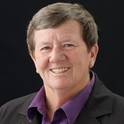Given the increasing numbers of openly lesbian, gay, bisexual, transgendered, and questioning (LGBTQ) people, music therapists are more likely to be in contact with LGBTQ individuals in their daily routines. LGBTQ people are coming out at earlier ages, staying out into their senior years, participating in marriage, and raising children. Expanding media coverage has focused on civil rights, marriage equality, bullying in the schools, and respect and pride in the community. Even though the AMTA Code of Ethics and Standards of Clinical Practice define a non-biased approach to working with LGBTQ individuals, the profession is still in need of best practice guidelines that will assist music therapists with tools to ensure that they are informed and sensitized to the needs of the LGBTQ community. The purpose of this paper is to propose a set of best practice guidelines and make recommendations for its implementation.
Article
Lesbian, Gay, Bisexual, Transgender, and Questioning: Best Practices in Music Therapy
Music Therapy Perspectives
Document Type
Article
Publisher
Oxford University Press
Publication Date
1-1-2012
Disciplines
Abstract
Citation Information
Whitehead-Pleaux, A., Donnenwerth, A.M., Robinson, B., Hardy, S. Oswanski, L.G., Forinash, M., Hearns, M.C., Anderson, N., & York, E. F. (2012). Lesbian, gay, bisexual, transgender, and questioning: Best practices in music therapy. Music Therapy Perspectives, 30(2), 158-166.
